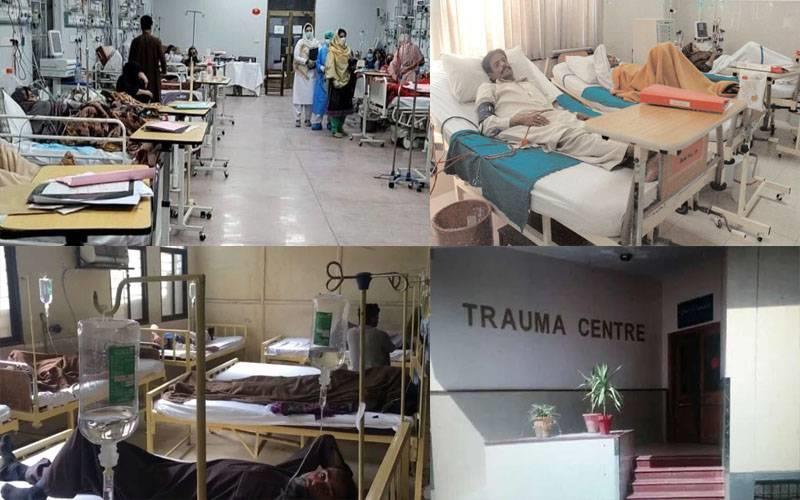Health
Khyber Pakhtunkhwa Outsources 72 Hospitals to Boost Care Quality

The Khyber Pakhtunkhwa Health Department has announced a significant shift in healthcare management by outsourcing the administration of 72 public hospitals to private firms. This decision, aimed at enhancing healthcare services, focuses primarily on Category B, C, and D hospitals that are often located in remote tribal areas and the southern regions of Khyber Pakhtunkhwa (KP).
According to documents from the Health Foundation, these hospitals have been marked for outsourcing due to persistent issues including staff shortages, low patient admissions, and administrative inefficiencies. As a result, many residents struggle to access basic healthcare. The provincial government’s initiative seeks to address these chronic challenges and improve service delivery across the region.
Ehtesham Khan, the Provincial Health Advisor, confirmed the decision following extensive consultations with stakeholders. He emphasized that the outsourcing initiative will ensure better management, full staff availability, adequate medical supplies, and timely patient treatment. This approach is part of a broader strategy to reform healthcare in KP, particularly in underserved areas.
Details of the Outsourced Facilities
Among the notable facilities included in this outsourcing plan are several Category B hospitals such as the District Headquarters Hospital in Lakki Marwat, DHQ Miranshah in North Waziristan, DHQ Hangu, and the Dargai Hospital in Malakand. Additional facilities in Category C include DHQ Ghalanai in Mohmand and DHQ Tank, as well as numerous tehsil-level hospitals across the province.
Category D hospitals set for outsourcing include Titterkhel and Tajuri in Lakki Marwat, Bana in Battagram, and Amakhel in Tank. Other facilities in areas such as Upper Chitral, D.I. Khan, and Kohat are also part of this initiative. The plan extends to several Rural Health Centers (RHCs) and civil hospitals in tribal districts, including Sararogha, Ladha, and Dattakhel.
Journalist Muhammad Faheem noted that this is not the first attempt by KP to implement such a model. Currently, 19 hospitals are successfully managed by private firms under the Health Foundation framework. This prior experience has shown promising results, ensuring the presence of medical staff in remote areas where government employees often face challenges in fulfilling their duties.
Regulatory Framework and Future Goals
Ehtesham Khan reassured the public that the outsourcing is not intended to close any hospitals. Instead, the goal is to make these facilities more functional, efficient, and aligned with public expectations. The government will maintain regulatory oversight, ensuring that private firms operate hospitals within approved budgets and adhere to official guidelines.
This strategic move represents a critical step toward healthcare reform in Khyber Pakhtunkhwa. The Health Department aims to deliver improved services to populations in need, addressing gaps in healthcare access and quality. By fostering a partnership with private firms, the government hopes to enhance healthcare infrastructure and meet the needs of residents in underserved regions.
As this initiative unfolds, it will be crucial to monitor its impact on healthcare delivery and patient experiences in the coming months.
-

 World5 months ago
World5 months agoSouth Korea’s Foreign Minister Cho Hyun to Visit China This Week
-

 Business5 months ago
Business5 months agoStarling Bank Plans Secondary Share Sale, Targeting $5.4 Billion Valuation
-

 Top Stories5 months ago
Top Stories5 months agoMunsang College Celebrates 100 Years with Grand Ceremony
-

 World5 months ago
World5 months agoPAS Aims to Expand Parliamentary Influence in Upcoming Election
-

 Business7 months ago
Business7 months agoKenvue Dismisses CEO Thibaut Mongon as Strategic Review Advances
-

 Lifestyle6 months ago
Lifestyle6 months agoHumanism Camp Engages 250 Youths in Summer Fest 2025
-

 Sports6 months ago
Sports6 months agoDe Minaur Triumphs at Washington Open After Thrilling Comeback
-

 Sports7 months ago
Sports7 months agoTupou and Daugunu Join First Nations Squad for Lions Clash
-

 Top Stories7 months ago
Top Stories7 months agoColombian Senator Miguel Uribe Shows Signs of Recovery After Attack
-

 World7 months ago
World7 months agoASEAN Gears Up for Historic Joint Meeting of Foreign and Economic Ministers
-

 Health6 months ago
Health6 months agoNew Study Challenges Assumptions About Aging and Inflammation
-

 Business7 months ago
Business7 months agoOil Prices Surge Following New EU Sanctions on Russia









